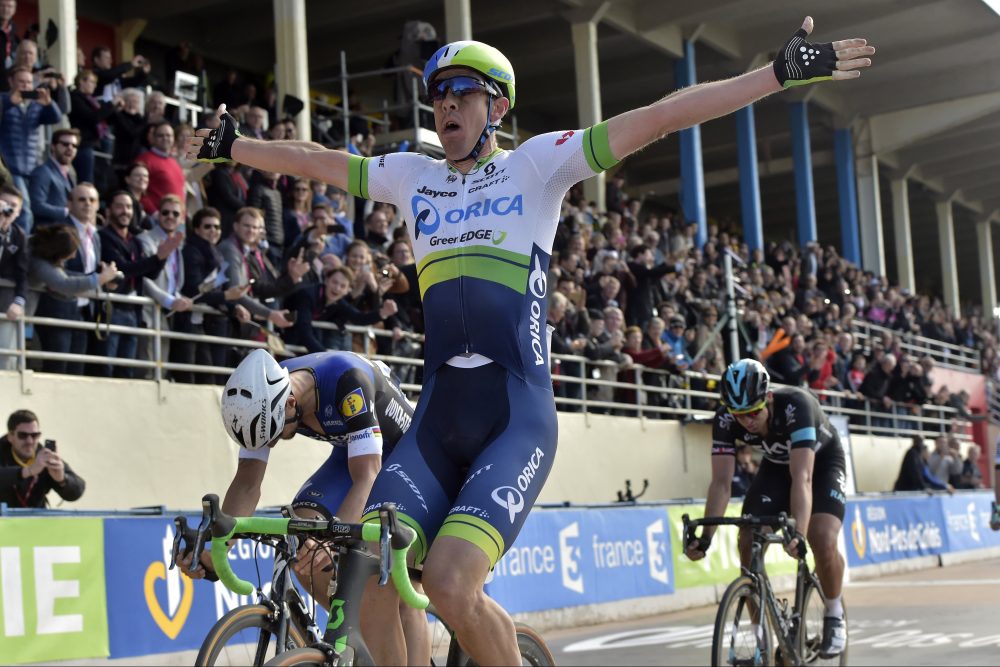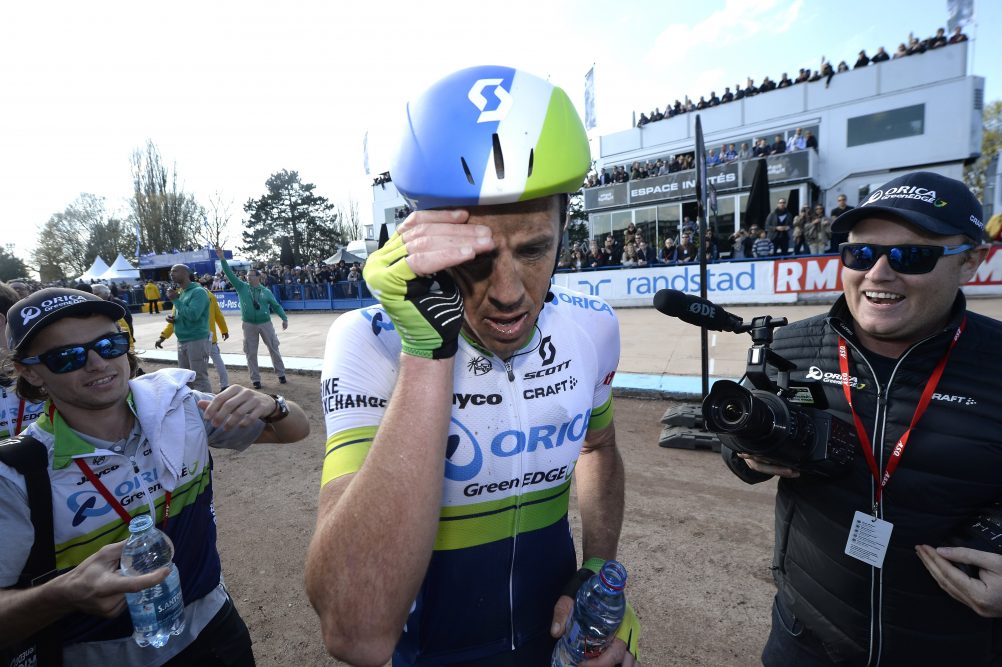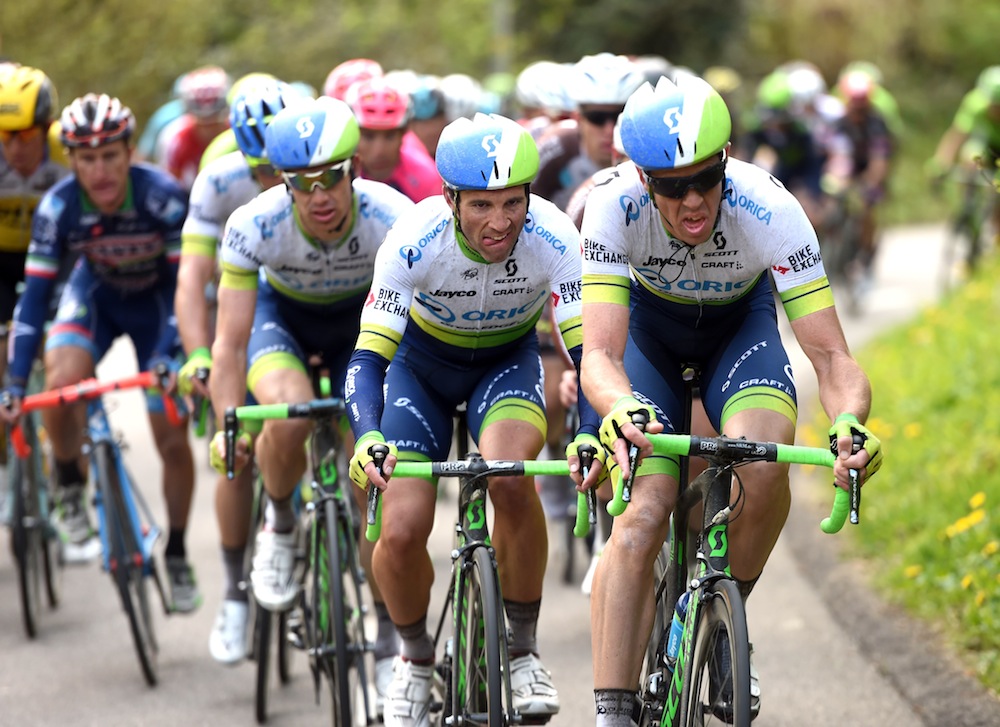Mathew Hayman looks back on his Paris-Roubaix win
The selfless and dependable team player is still coming to terms with his Paris-Roubaix triumph

Matthew Hayman wins the 2016 Paris-Roubaix
The latest race content, interviews, features, reviews and expert buying guides, direct to your inbox!
You are now subscribed
Your newsletter sign-up was successful
Mathew Hayman continues to speak as he rises from his chair to pose for a photo with a fan. Our interview at a cafe during the Tour de Yorkshire has been peppered with requests, which Hayman admits have been more prolific since he won Paris-Roubaix in a 15th career appearance just three weeks earlier.
The Australian veteran has been in the professional peloton a long time, 17 years, though playing the part of lauded champion is a new experience. He counts dependability among his greatest strengths and has forged a name for himself largely as a reticent super-domestique.
>>> Do riders need a special bike to win Paris-Roubaix? Mathew Hayman didn’t
“I’d seen some of my peers who tried to win races, or tried to go for themselves, and two years later they were out of a contract,” the 38-year-old recalls of his developmental years.
“It was easier to play safe, do your job well and be dependable as you’d always have a spot.”
Indeed, Hayman can’t readily recall times when he has asked for a protected role at Rabobank, where he spent his first 10 years, or at Team Sky or Orica-GreenEdge.
“I should back myself a bit more but I’ve made a career of being reliable, so it works both ways,” he says.
The latest race content, interviews, features, reviews and expert buying guides, direct to your inbox!
Tears of triumph

Hayman has an affinity with Paris-Roubaix for which words struggle to do justice. “Roubaix is one of those races where I normally end up every year crying at the end of it, and this year was no different,” he says.
“It’s controlled aggression for five or six hours.”
His triumph at the 2016 edition, which Hayman’s Orica-GreenEdge team had all but scratched him from following a crash at Omloop Het Nieuwsblad, is still sinking in.
Hayman had fractured his arm in the crash but thanks to turbo-training in his garage, turned around in six weeks to be race fit and oust Tom Boonen (Etixx-Quick Step) and a small group of title favourites in the famous velodrome.
“They [Orica-GreenEdge] thought that I was out for the Classics. I rang them at one stage and asked where my bikes were and they said at the service course in Italy. I asked why they weren’t in Belgium [Hayman’s European base] because there was still a chance that I could race. They were surprised that I was still holding out hope,” he says.
Work ethic

Before Roubaix, he’d told Orica-GreenEdge sports director Matt Wilson that he felt good and was assigned a free role, albeit one that came after protecting leaders Luke Durbridge and Jens Keukeleire.
Ultimately, he made the main break and didn’t have to drift back to help his team-mates.
“I could afford to lose,” he adds. “Nobody expected me to win and I didn’t have to win. Sep [Vanmarcke] had to win, Tom [Boonen] had to win, Ian [Stannard] had to attack, all these things played into my hands and I could gamble.”
>>> Watch: Behind the scenes of Mathew Hayman’s Paris-Roubaix winning ride
A result like Roubaix can drastically alter the trajectory of a cyclist’s career in terms of prospects and earning power.
Hayman was spotted meeting with a rider agent at the Tour de Yorkshire but typically represents himself and has a contract with Orica-GreenEdge for 2017.
“There might be some things coming out of the woodwork,” he says. “Had I been 21 years old, I could be a promising Classics rider for the next 10 years and that would be different. I was already quite satisfied with what I’d achieved as a rider so I’m not ruing why this didn’t happen to me 10 years ago and why I haven’t made more money.
“There’s a bunch of guys, I know who they are, and it’s almost like I won for them too, for guys that love that race and have always kept believing that maybe there was a chance.”
Hayman has a score to settle at the Tour de France, now a title to defend in 2017 and, as was the case in Yorkshire where teammate Caleb Ewan’s sprint plans were not realised, is still motivated enough to feel loss.
“In Yorkshire I was thinking, why am I down in the dumps for two hours after a race? I should be happy as Larry, I won Roubaix, so why do I care?” he says.
“But I still do care.”
Sophie Smith is an Australian journalist, broadcaster and author of Pain & Privilege: Inside Le Tour. She follows the WorldTour circuit, working for British, Australian and US press, and has covered 10 Tours de France.